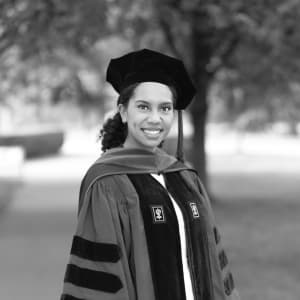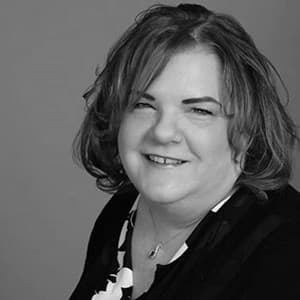Choosing Between Nursing School and Medical School
 Credit: SDI Productions / Getty Images
Credit: SDI Productions / Getty ImagesStudents interested in pursuing careers in healthcare may consider a degree in nursing or medicine. Choosing between nursing and medical school depends on each student’s ultimate career goal and what kind of studies they’re most interested in pursuing.
Dr. Camille Wendekier, associate professor and program director for the master of science in nursing at St. Francis University, explains that the basic paradigms in medical and nursing school differ in fundamental ways.
“The medical paradigm, the disease model, focuses on the disease process and treating/curing the disease,” says Dr. Wendekier. “Nursing is more of a contextual model. This model assesses the individual within the context of their life circumstances and surroundings.”
This guide offers information on what to consider when choosing between nursing school and medical school, including education and program length, curriculum, and program costs. Keep reading to hear more from nursing contributors in each field and learn more about the differences between nurses and doctors.
Education and Timeline Differences
Program length serves as one key difference between nursing and medical school. Medical school takes significantly longer than nursing programs. Nursing programs range from two years for an associate, to four years for a BSN, to six years for a master’s. Medical school, on the other hand, requires a minimum of eight years of education plus residency.
“Medical school is four years of college, four years of medical school, and 3-7 years of residency (+/- fellowship) before you are practicing on your own,” says medical student Kristin Aromolaran. “That is at minimum 11 years of school and training after high school. On the other hand, nursing can be four years of undergrad, with additional years for master’s or doctoral degrees if desired.”
Students should select a degree track based on their interests and what they find most fulfilling. As Aromolaran points out, “Whenever someone is considering a career in healthcare, I always tell them to think about what it is that they enjoy and what they want to do everyday.”
Curriculum Differences
In addition to nursing and medical school programs requiring different amounts of time and educational commitment, the curriculum in each program also differs. As Dr. Wendekier pointed out, the basic paradigms that make up each path differ in key ways. Nursing education often emphasizes the individual patient and their needs, contextually, whereas medical education models emphasize more general science and physiology.
“In nursing school, you learn how to be a nurse, and the curriculum is structured by work environment, such as critical care, pediatrics, etc.,” says Aromolaran. “In medical school, the curriculum is structured by system, and you learn the science of medicine. You don’t learn how to be a doctor as much as you learn medicine.”
Dr. Chris Colbert, the assistant program director of the emergency medicine residency program at the University of Illinois at Chicago, emphasizes that both professions require an immense amount of learning.
“The volume of information required within medical school is greater than that of nursing school due to the wide breadth of information required to ultimately manage patients,” he says. “The virtues of dedication, sacrifice, and an unbridled passion to learn are required of both professions.”
Program Cost Differences
Generally, medical school costs a great deal more than nursing school. Medical school requires more schooling and therefore more tuition expenses, and tuition at medical school is generally higher than undergraduate programs. Medical school requires time and commitment, making it difficult for students to work full time while attending school.
Aromolaran points out, “As a medical student, it might be possible to work part time in the first year or fourth year, but would be incredibly difficult to work throughout the rest of medical school.”
Fortunately, starting salaries for both positions help offset those program costs.
“Medical school is significantly more expensive than nursing school,” says Dr. Colbert. “But both professions provide an income to compensate any financial debt accrued.”
However, nursing students may enter the professional workforce in less time than medical doctors.
Job Growth and Salary Outcome
The country’s aging population has also created a steadily growing demand for healthcare professionals, including both nurses and medical doctors. Despite serving as one of the top areas for job growth by the Bureau of Labor Statistics (BLS), the nursing field still faces shortages. The BLS projects the field to require at least 203,700 new RNs each year to meet demand.
Both professions offer comfortable salaries once in the job field. Registered nurses earn a median salary of $73,300, while nurse practitioners make over $115,000. Physicians earn a median salary greater than $208,000 per year.
Data shows jobs in healthcare may grow twice as quickly as non-healthcare jobs in the next 10 years. The BLS projects substantial and steady growth for both nurses and doctors in the coming years. Projections show jobs for nurses expanding by 12% and jobs for physicians increasing by 7%.
Role Differences
Nurses and physicians operate in different roles; however, both roles complement one another. Both professions work in tandem, providing support and guidance. One primary difference rests in the fundamental educational background of nurses and physicians: doctors study science and how the body works, whereas nurses emphasize patient care and well-being.
“Physicians and PAs focus on healing the patient in relation to the disease model,” says Dr. Wendekier. “In contrast, advanced practice nurses also diagnose and treat patients, but they do so from the nursing model, which is a holistic framework.”
Despite the differences in the roles between doctors and nurses, both work together to care for patients on all levels.
“There can be a lot of overlap in their roles, specifically in speaking to patients, families, and in treatment,” says Aromolaran. “The nurse spends the most time at the bedside with the patient, and therefore can act as the coordinator of patient care. The nurse will often inform the physician of things that the physician may not see because they have more patients.”
Compared to physicians, nurses also possess a greater ability to move between specialty areas and work in a wider variety of medical fields.
As Dr. Wendekier emphasizes, “All nursing students will need to master the delivery of care in clinical experiences that focus on general medical-surgical, critical care, obstetric, and pediatric patients.”
Patient Care Differences
Nurses provide individualized, personal care for patients. They spend more one-on-one time with patients, and therefore may serve as the first care providers to notice changes in a patient’s condition.
“Nursing is known as a caring profession. Nurses care for people to help them identify their personal health goals that are culturally and socially influenced,” says Dr. Wendekier. “Nurses can assist the physicians and advanced practice nurses. PAs understand how the patient has interpreted the diagnosis/treatment and how these beliefs are impacting the individual’s understanding of the prescribed treatment.”
Physicians focus on patient care from the disease model, which places the emphasis on diagnosis and treatment. Dr. Wendekier points out that “Physicians, advanced practice nurses, and PAs are responsible for diagnosing the individual and determining what care will best help the patient overcome a diagnosis or health issue.”
Due to the inherently closer relationships nurses form with patients, prospective students should consider if this aspect of nursing would fit their personality, or if they would rather their focus primarily emphasize science and physiology.
“Whenever someone is considering a career in healthcare, I always tell them to think about what it is that they enjoy and what they want to do everyday,” says Aromolaran.
Frequently Asked Questions
Why should I become a doctor instead of a nurse?
On average, doctors earn more money than nurses, due to more time spent in school and often have a more specialized career focus. However, students should consider their career goals and interests.
Medical student Aromolaran asks: “Are you someone who cannot stand to be in school, hates tests, and wants to be done as soon as possible? If so, embarking on the journey to be a physician may be daunting.”
Can a nurse become a doctor?
Yes. In fact, a background in nursing can provide a solid foundation for studying for the MCAT and entering medical school. Nurses may also consider pursuing advanced nursing careers, some of which lead to similar roles as physicians.
“The flexibility of nursing specialties allows one to change professional goals as their life evolves and their circumstances change,” says Dr. Wendekier.
Do nurses or doctors make more?
In the long run, doctors typically earn more. However, no salary level is guaranteed, and earnings can vary based on a variety of factors.
“On average, the peak salary of a physician is higher than that of a nurse, but there are various career paths from both medical and nursing school which vary in compensation,” says Aromolaran. “In the end, the higher earning potential of a physician offsets the higher upfront costs.”
Do nurse practitioners go to medical school?
No. Nurse practitioners pursue specialized programs at the graduate level that lead specifically to careers in advanced nursing practice. These programs differ from those that medical doctors pursue. Students may earn a master’s in nursing or opt for a doctorate in nursing practice.
Which Path Is Right for You?
Every student should consider their own goals, interests, and lifestyle when choosing between nursing and medical school.
Nursing student Isabella Grabin emphasizes the importance of self-reflection in this process. “Before deciding which healthcare path is right for you, be sure to do some self-reflect[ion] on who you are as a person,” she says. “Take some time to really delve into who you are, what you want to accomplish, and how much grit and determination you have.”
Students should consider whether they want to specialize their studies or pursue a more general healthcare track. For instance, nursing may provide the opportunity to work in a variety of healthcare fields, whereas pursuing a career as a physician may mean focusing on one specialty area. Nursing school also provides more flexibility than medical school, allowing students more leeway to pursue their degree at their own pace.
Ultimately, both roles serve as fulfilling and worthwhile options for any student considering a career in healthcare.
“When deciding between nursing school versus medical school, the bottom line is fit,” says Dr. Colbert. “Any path you choose in the medical field is rewarding and of tremendous service to the community. When choosing between nursing school or medical school, it’s important to understand that each requires great sacrifice.”
Meet Our Contributors

Kristin Aromolaran is an incoming emergency medicine intern at Emory University and a recent graduate of the MD/MBA program at New York University. Aromolaran is originally from Virginia and moved to New York for college, where she was a neuroscience major at Columbia University. After college, Aromolaran took a year and worked in the business world while applying to medical school.

Dr. Christopher Markus Colbert is the assistant program director of the emergency medicine residency program at the University of Illinois at Chicago with specific interest in academic and social emergency medicine. Additionally, he is the chair of continuing medical education for the American College of Osteopathic Emergency Physicians (ACOEP), the co-chair of Illinois College of Emergency Physicians (ICEP) spring symposiums, and a lieutenant colonel in the U.S. Army Reserve. Dr. Colbert has provided and moderated lectures nationally and internationally, receiving awards for speaker engagement and contribution to medical education. He received his undergraduate degree from Hampton University, his medical degree from Des Moines University’s Doctor of Osteopathic Medicine program, and is a graduate of Midwestern University’s emergency medicine residency program.

Isabella Grabin is a nursing student at the University of Wyoming going into her junior year. She is a new member educator of the Psi Delta chapter of Chi Omega fraternity and is involved in many organizations on campus. In her free time, she enjoys going on runs, baking, and finding anything that is the color yellow.

Dr. Camille Wendekier is an associate professor and program director for the master of science in nursing at Saint Francis University. She has 14 years of experience in various nursing roles that include community outreach, rehabilitation admission liaison nursing, acute rehabilitative nursing, school nursing, medical surgical nursing, and oncology nursing. She is also a certified nurse educator, working with students in the nursing program to outline their career goals and teaching them the steps to accomplish those goals.

